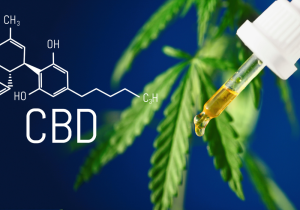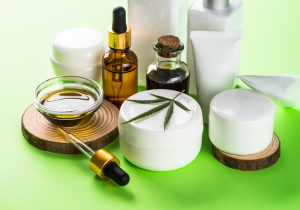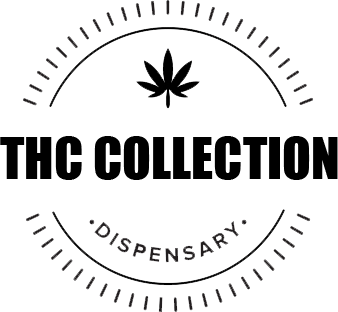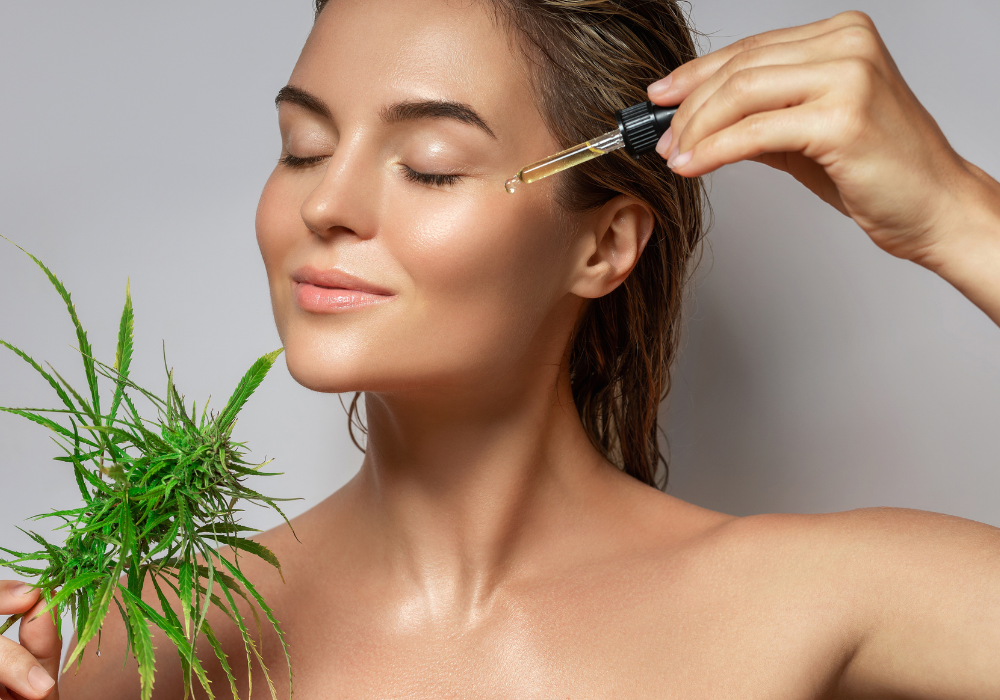The world of skincare is constantly evolving, with new ingredients and technologies emerging to address various skin health concerns. One such ingredient that has gained significant traction in recent years is CBD (cannabidiol). Hailed for its potential health benefits, CBD is making waves in the beauty industry, promising everything from acne relief to anti-aging solutions. But what exactly is CBD, and why is it becoming a go-to ingredient for skincare enthusiasts and health-conscious consumers alike? In this blog post, we’ll delve into the science behind CBD and its potential benefits for skin health, explore how it can address common skin issues, and provide practical tips on incorporating CBD into your daily skincare routine.
 The Science Behind CBD and Skin Health
The Science Behind CBD and Skin Health
CBD is a non-psychoactive compound derived from the cannabis plant. Unlike THC (tetrahydrocannabinol), CBD does not produce a “high,” making it a safe and attractive option for various therapeutic applications. When it comes to skin health, CBD interacts with the body’s endocannabinoid system (ECS), a complex network of receptors and neurotransmitters that play a crucial role in maintaining skin balance and homeostasis.
How CBD Interacts with the Skin
The skin contains its own endocannabinoid receptors, primarily CB1 and CB2. When CBD is applied topically, it binds to these receptors, potentially influencing several processes related to skin health, including:
- Inflammation Regulation: CBD has been shown to possess anti-inflammatory properties, which can help reduce redness, swelling, and irritation.
- Sebum Production: By regulating the skin’s oil production, CBD may help prevent acne and maintain a balanced complexion.
- Antioxidant Activity: Rich in antioxidants, CBD can protect the skin from environmental damage and oxidative stress, which are key contributors to aging.
CBD for Common Skin Issues
Given its multifaceted benefits, CBD is being touted as a solution for various skin conditions. Below, we explore how CBD can address some of the most common skin issues:
Acne
Acne is often caused by excess oil production, clogged pores, and bacterial infections. CBD’s anti-inflammatory properties can help reduce the swelling and redness associated with acne. Additionally, its ability to regulate sebum production can prevent the formation of new pimples. Some studies have also suggested that CBD possesses antibacterial properties, which can further aid in combating acne-causing bacteria.
Eczema
Eczema is a chronic skin condition characterized by dry, itchy, and inflamed patches of skin. CBD’s anti-inflammatory and moisturizing properties make it a promising option for alleviating eczema symptoms. By reducing inflammation and providing hydration, CBD can help soothe irritated skin and restore its natural barrier.
Aging
Aging skin often shows signs of fine lines, wrinkles, and loss of elasticity, primarily due to oxidative stress and environmental damage. CBD’s antioxidant properties can help neutralize free radicals, protecting the skin from damage and promoting a youthful appearance. Furthermore, its moisturizing effects can improve skin hydration, making it appear plumper and more radiant.
How to Incorporate CBD Into Your Skincare Routine
If you’re intrigued by the potential benefits of CBD for your skin, you may be wondering how to incorporate it into your skincare routine.
 Choosing the Right CBD Products
Choosing the Right CBD Products
When selecting CBD skincare products, it’s essential to consider the following factors:
- Quality and Purity: Look for products that use high-quality, organically grown CBD. Ensure that the product has been third-party tested for purity and potency.
- Type of CBD: CBD skincare products can contain full-spectrum CBD, broad-spectrum CBD, or CBD isolate. Full-spectrum products contain all the cannabinoids and terpenes found in the cannabis plant, while broad-spectrum products contain all cannabinoids except THC. CBD isolate is pure CBD with no other cannabinoids. Choose a type that aligns with your preferences and needs.
- Formulation: Consider the product’s formulation and whether it suits your skin type and concerns. For example, serums and oils are great for dry skin, while gels and lotions may be better for oily or acne-prone skin.
Incorporating CBD into Your Routine
To maximize the benefits of CBD for your skin, follow these steps:
- Cleanse: Start with a gentle cleanser to remove dirt and impurities from your skin.
- Apply CBD Serum/Oil: After cleansing, apply a CBD-infused serum or oil to your face. Gently massage it into your skin using upward motions.
- Moisturize: Follow up with your regular moisturizer to lock in hydration.
- Sun Protection: Don’t forget to apply sunscreen during the day, as CBD does not provide UV protection.
Future of CBD in Skincare
The future of CBD in skincare looks promising, with ongoing research and innovation shaping the industry’s landscape. Here are some emerging trends and predictions for the future of CBD in skincare:
Personalized Skincare
Advancements in technology may lead to personalized CBD skincare products tailored to individual skin types and concerns. This approach could enhance the effectiveness of CBD for each user, providing customized solutions for optimal skin health.
Increased Research
As interest in CBD continues to grow, so does the investment in research. Future studies will likely provide more robust evidence of CBD’s benefits for skin health, further establishing its credibility and effectiveness.
Innovative Formulations
Skincare brands are continually exploring innovative ways to incorporate CBD into their products. This includes combining CBD with other beneficial ingredients, creating multi-functional formulations, and developing new delivery methods for enhanced absorption and efficacy.
The future of CBD in skincare is bright, with ongoing research and innovation paving the way for new possibilities. Whether you’re dealing with acne, eczema, aging, or simply looking to enhance your skin’s overall health, CBD offers a natural and promising solution worth considering.

